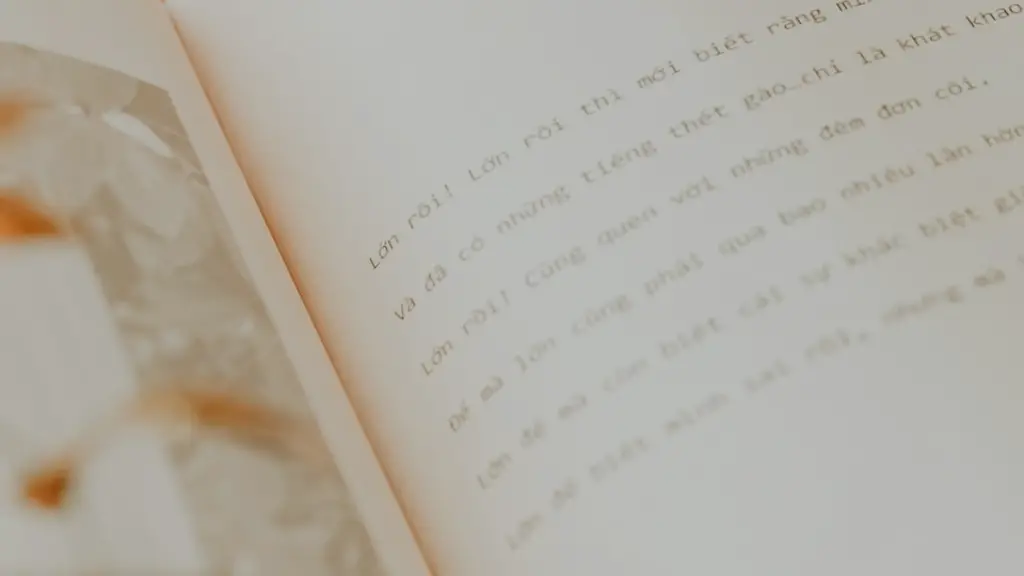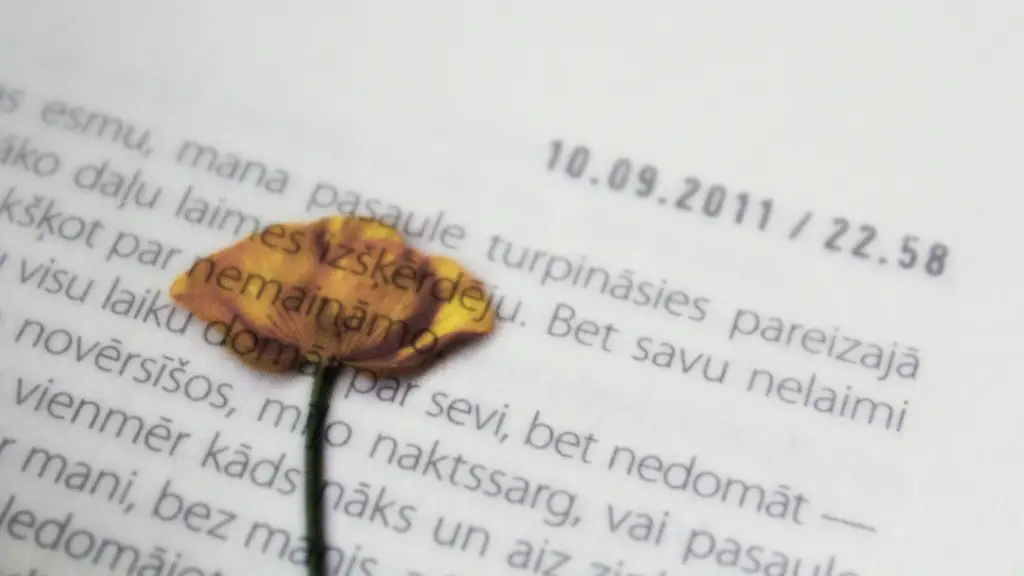How to Write a Poetry Book Review
Writing a poetry book review is a great way to share your opinion on poetry and the poets who write it. It can also help inform and educate readers who might not be familiar with the poet’s writing style and themes. Here are some tips and tricks to help you craft an interesting and informative review of a poetry book.
Background Research
Before beginning to write a review, it is important to read the book in order to get an in-depth understanding of the material. At the same time, it is useful to familiarize yourself with the poet’s prior work and any background information about their life and poetry that might be relevant to the book in question. This will help you to form your own opinions about the work and make sure that your review is well-informed in terms of both the book’s content and the poet’s past work.
Talk to friends and peers
Talking to other friends and peers about the book can be a great way to gain even more insight into the material. Ask them to share their thoughts on the book and how they felt when reading it. They may even provide more detailed information about the book’s content, aesthetics and biography that can help you craft a more elaborate and interesting review.
Engage with characters and themes
An effective review focuses on the characters, themes and motifs present in the book to help readers gain a better understanding of the work. Relate the characters to relevant social and cultural circumstances, as well as other literature, to give your review added texture and perspective. Talk about the different themes evoked in the book and how they were interpreted and delivered by the poet, and consider how the themes are relevant to the times in which the book was written.
Analysis & Structure
When considering the structure of the poem, think about the narrative arc the poet builds and how they use different techniques to deliver this arc. Ask yourself questions like: how does the poet set up their narrative? Which types of poetic devices were used? Does the structure of the poem provide a sense of flow and consistency? Examining the structure of a poem can help you to uncover its deeper meanings, as well as to provide readers with an expert analysis of the text.
Express your opinion
Your opinion is one of the most important aspects of a book review because it helps readers to get an understanding of the book from your point of view. Therefore, it is important to carefully consider which aspects of the book you enjoyed and which you didn’t, as well as providing an overall rating of the material. Expressing your opinion provides detail and gives readers an idea of who the book might be best suited for, giving them a better understanding of the work before they choose to read it.
Form & Language
The form and language of a poem can also be a great way to understand the message and meaning that the poet was trying to convey. Discuss how the poet uses language to evoke emotions and how the form of their poem aids in the delivery of this meaning. Pay attention to which techniques are used by the poet and consider how they help the poem to stand out from others.
Reference Secondary Sources
Referencing secondary sources, such as an interview with the poet or an article about the book or poet, can help give added credence and depth to a review. For example, discussing an interview with the poet about the themes in the book and how they relate to their prior work, can help to provide a unique perspective on the book that readers may not have come across before.
Use a Clear, Personal Writing Style
The most important aspect of a review is to write clearly and honestly. Avoid over-the-top language or flowery descriptions of the material, and opt for a clear and concise writing style that provides an impartial and personal opinion of the book. Using your own personal experience and insights will help readers connect with the review on an emotional level, as well as helping them to take away pertinent points about the book’s content.
Appeal to the General Audience
When writing a review, try to make sure it is accessible to a wide range of readers. Try to avoid complex vocabulary and jargon, and look for alternative ways to phrase complex ideas. Keep your sentences short and concise, and avoid becoming overly technical or academic. When possible, use words and phrases that will appeal to a general audience. This way, you’ll be sure to attract a larger readership for your review.
Provide Suggestions
If a book has particular weaknesses, provide suggestions on how it could have been improved. This is a great way to show that you have taken the time to really think about the book, and pinpoint the issues that you believe may have detracted from the overall quality of the book. Suggestions could include changes to language or form, or even a different narrative arc. Providing suggestions can also help to make your review even more credible and well-rounded.
Include Different Genres
If the book you are reviewing is a collection of poems, mention the different genres of poetry within the collection. For example, if the book contains sonnets and free verse poems, this should be highlighted in your review. Discussing the different genres of poetry in the book helps to give context, and can provide readers with an even better understanding of the poet’s style and voice.
Final Thoughts
Writing a poetry book review can be a daunting task, especially for those who are unfamiliar with poetry or the poet’s work. However, it can be a great opportunity to broaden your own understanding of a topic or genre, as well as helping other readers to gain an even greater appreciation for the work. By following the tips above and referencing your own experiences, you can write an effective and well-informed review of a poetry book.



